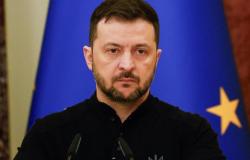It’s the same with oil as it is with gas. The government may claim that the Czech Republic will soon no longer be dependent on deliveries from Russia, but for the moment, Czech refineries nevertheless continue to obtain supplies via the Druzhba oil pipeline. The same one that was at the center of political and media attention last week when, for two days, crude oil from eastern Russia stopped flowing through its pipes.
“In Ukraine, we saw strong support from Czechia and Austria. None of these countries blocked the European Union’s sanctions packages. In contrast, Czechia continued to import oil from Russia and even increased its imports. I don’t think it’s ideal.”recently regretted Vladyslav Vlasiuk, who is the advisor to Ukrainian President Volodymyr Zelensky responsible for sanctions against Russia, in an interview with the Czech media Voxpot and Denik N.
In the Czech Republic, part of the diesel or gasoline that motorists buy at the pump is imported from abroad. However, the majority of these two fuels obtained through the distillation of crude oil are produced in Czechia, by refineries located in Kralupy nad Vltavou, about twenty kilometers northwest of Prague, and in Litvínov, in north-west Bohemia, near the border with Germany. Together, these two sites cover around two thirds of the total consumption of gasoline and diesel in Czechia (of the 9.3 million tonnes of petroleum products consumed in 2023, around 4 million were imported, including 2.4 million from Germany, the rest from Slovakia, Poland and Austria).
La raffinerie de Litvínov|Photo: Jan Bachorík, Czech Republic
There is, however, a notable difference between the two. Indeed, while the Kralupy refinery processes oil from countries other than Russia, the Litvínov refinery is connected to the Druzhba oil pipeline and therefore mainly supplies itself with Russian oil. A situation which should however change next year, since the refinery will then be connected to the IKL (Ingolstadt-Kralupy-Litvínov) pipeline, which, from Germany, supplies crude oil from outside Russia and whose transport capacity to the Czechia has recently been increased. An oil pipeline which is also connected to the Transalpine oil pipeline (TAL), which links Italy, Austria and therefore Germany.
Until now, Czechia was one of three EU countries, along with Slovakia and Hungary, which benefited from a derogation to import petroleum products from Russia. This temporary exemption, however, expired at the beginning of December and, according to the Ministry of Industry, there was no need to extend it. Slovakia, however, did not agree and the European Commission accepted its vision. This exemption must still be officially confirmed during the meeting of the Council of Industry Ministers of the Twenty-Seven which will be held on Monday December 16 in Brussels.
Director of the department responsible for energy at the Ministry of Industry and Trade, René Neděla confirms that Prague did not wish to align itself with the position of Bratislava and the government led by Robert Fico:
“The Czech Republic does not need this exemption for its consumption. This is what we also declared several times during the discussions, but our Slovak colleagues justified their desire to see the exemption extended by the need to help Ukraine and stabilize the supply of petroleum products to the Central Europe, an argument which was subsequently supported by Hungary. »
Concerning Slovakia, the company Slovnaft, whose headquarters is based in Bratislava but which is a subsidiary of the Hungarian oil and gas group MOL, produces fuels mainly based on Russian oil, the majority of which it then exports, among others to Ukraine .
On Wednesday, member states’ ambassadors to the European Union approved a political agreement on the content of the new package of sanctions against Russia, the fifteenth since the start of the war in Ukraine; sanctions which particularly concern Russian oil. And if the Czechia did not oppose the request made by Slovakia and Poland to extend the exemption from the ban on the import of Russian petroleum products, it is in particular because this extension will only last six months . In the eyes of his Prime Minister, Petr Fiala, the essential now lies elsewhere:
Petr Fiala|Photo: Magdalena Henkel, CTK/DPA
“What is important for the Czech Republic is that thanks to the negotiations we conducted at all levels and our decision to invest [dans le projet]the Transalpine oil pipeline (TAL) could be expanded. This equipment will be fully operational from next year with greater transport capacity and will then allow us to completely get rid of our dependence on Russian oil. »
So, when the new exemption comes to an end next June, there should be no shortage of fuel on the Czech market, especially since the refineries owned in the Czech Republic by the company Orlen Unipetrol, a subsidiary of the petrochemical giant Polish Orlen, say they are ready to increase their supplies and adapt to the needs of the market in Central Europe. Even without Russian oil, there should ultimately be no shortage of fuel in Central Europe. It remains to be seen what will actually happen.






